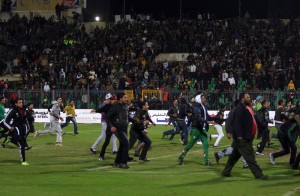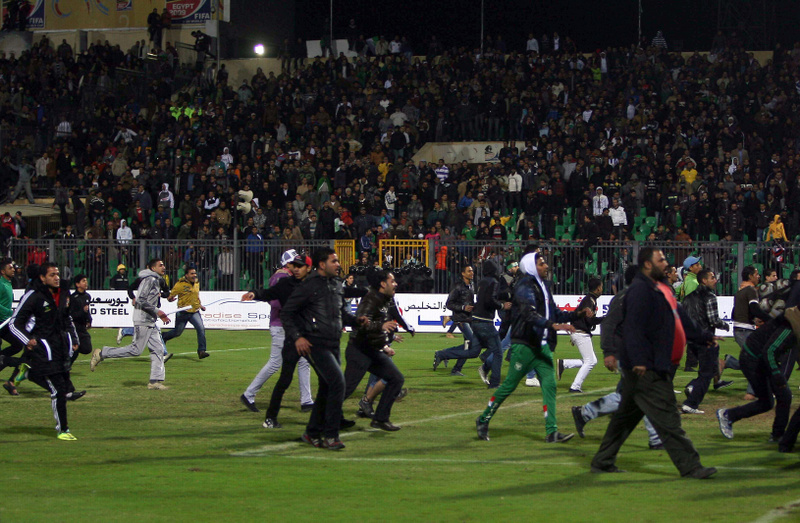
(AFP File Photo)
The Port Said Criminal Court upheld Tuesday the death sentences on 11 defendants convicted for participating in the violent events in 2012, dubbed the “Port Said massacre”.
Another 40 defendants received prison sentences ranging from one year to 15 years. Among them is former Port Said security director General Essam El-Din Samak, who received five years.
The court also acquitted 21 other defendants from all charges. There were a total of 73 defendants in the case.
In April 2015, the court sentenced 11 defendants to death pending the decision of Egypt’s Grand Mufti.
The latest court appearance is a retrial, following the Court of Cassation’s decision to accept appeals by the prosecution and defendants.
The case dates back to February 2012, when, during a match between rival teams Al-Masry and Al-Ahly, home team fans stormed the pitch attacking the away team fans. With the police not intervening, 74 Al-Ahly fans were killed.
Before reading the verdict, the judge highlighted the importance “Egypt’s youth”, stressing that the phenomenon of the Ultras was “abused by people” who spread false ideas into the minds of the fans.
State media reported that he also commented on some violent Ultras methods of celebrating victory and triumph over the opponents, adding that there should be legal bases to regulate the whole process.
After the Port Said incident, some Al-Masry fans posted pictures online with the flags, uniform, and banners of their rivals Ultras Ahlawy.
Currently in Egypt, Ultras groups are banned by court order.

